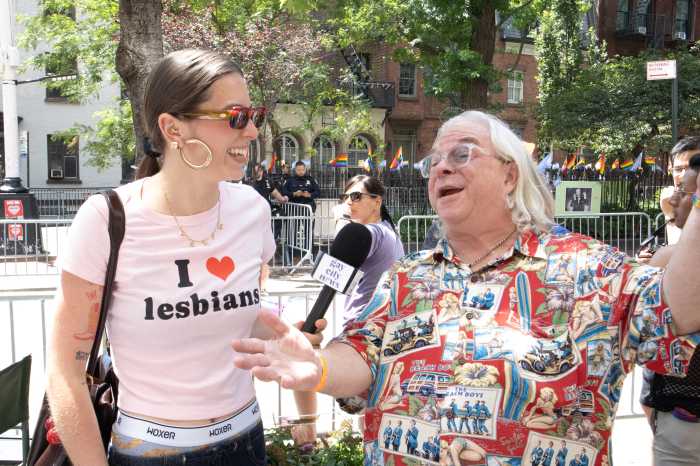Segregationist’s Gov.’s ‘Faustian Bargain’
(AP) George Wallace is remembered by many as the segregationist Alabama governor who was shot while campaigning for president. His son has written a book hoping to broaden that view.

The book by George Wallace Jr. aims to let people know that the four-term governor died a much different man than he was in 1963 when he proclaimed “segregation forever” in his first inaugural speech.
Wallace says his book, “Governor George Wallace, The Man You Never Knew,” grew out of memories he started putting on paper years ago.
“The more I wrote, the more I realized that there really is a man here many people never knew because he had been so defined by his early positions on segregation,” he said. “That bothered me.”
Wallace’s self-published book is full of vignettes-many never before told publicly-about his entire family. It’s also full of pictures. Some are crisp photos taken by professional photographers at public events. Others are grainy snapshots never shared beyond the Wallace family before.
He explains that his father first ran for governor in 1958 as a moderate, even getting support from the NAACP, and he lost. Four years later, he was the staunchest candidate on segregation because that’s what brought out big crowds.
“To a large extent it’s about the bargain he had to make-perhaps a faustian bargain-for the power that he wanted,” the governor’s son said.
After that election, the Wallace family packed up their belongings in Clayton and moved to Montgomery, where George Wallace Jr. attended segregated public schools while his father stood in the schoolhouse door at the University of Alabama to try to prevent integration.
Wallace writes that when his father wasn’t making speaking trips around the nation, he would drop by his bedroom in the Governor’s Mansion some evenings. They would talk about school and the governor would ask his son to play a song he’d learned on his new guitar from Sears.
Wallace recalls that when he was 14 in 1965, his father stopped by one night and asked for a song. Wallace had just learned Bob Dylan’s “The Times They Are A-Changin.'”
The governor’s face changed when his son got to the poignant lines, “Don’t stand in the doorway. Don’t block up the hall.”
“I remember him turning to me with a startled look in his eyes. What was he thinking when he realized the lyric was about him?” Wallace asked.
Wallace says his father’s views on race were already changing before Arthur Bremer shot him during a presidential campaign appearance in 1972. But the pain resulting from that paralysis gave the governor fresh insight.
“The suffering he endured over
–SEE WALLACE ON PG. 59- time after he was shot allowed him to understand the suffering of others in a way that I will never know,” Wallace said.
In the 431-page book, Wallace recounts how his father went to Martin Luther King’s Montgomery church in 1979 and told the audience, “I was wrong.” And how he was elected to a fourth term in 1982 with strong black support.
Despite that, the governor worried about the effects of his old views.
“He realized words he had uttered and actions he had taken had caused harm to others, and that bothered him greatly,” Wallace said.
The violence, like the Klan-inspired church bombing in Birmingham that killed four black girls, troubled Wallace for many years.
“That was a burden he always had to bear and he was concerned about it,” Wallace Jr. said.
Part of Wallace’s redemption process included writing letters to Bremer to say that he was forgiven. He never got a letter back, but that wasn’t the goal.
“He said, `Son, if I can’t forgive him, my Lord can’t forgive me.”‘
Wallace died in 1998. The book reveals that he spent much of his last few hours with a black state trooper holding his hand and comforting him.
“He was at peace when he left us. The tremendous black support he got in later years rested his soul,” Wallace said.
For the 60-year-old Wallace Jr., publishing these personal stories fulfills an obligation he felt as the governor’s namesake.
“My soul is rested because I’ve been able to tell the story of the man I knew,” he said.


































